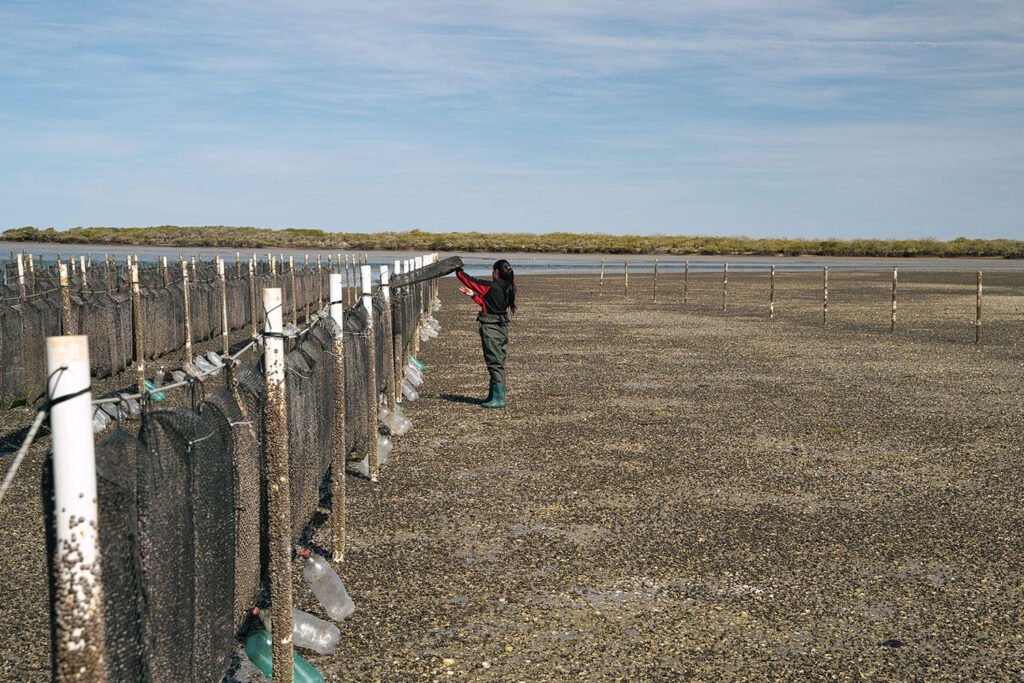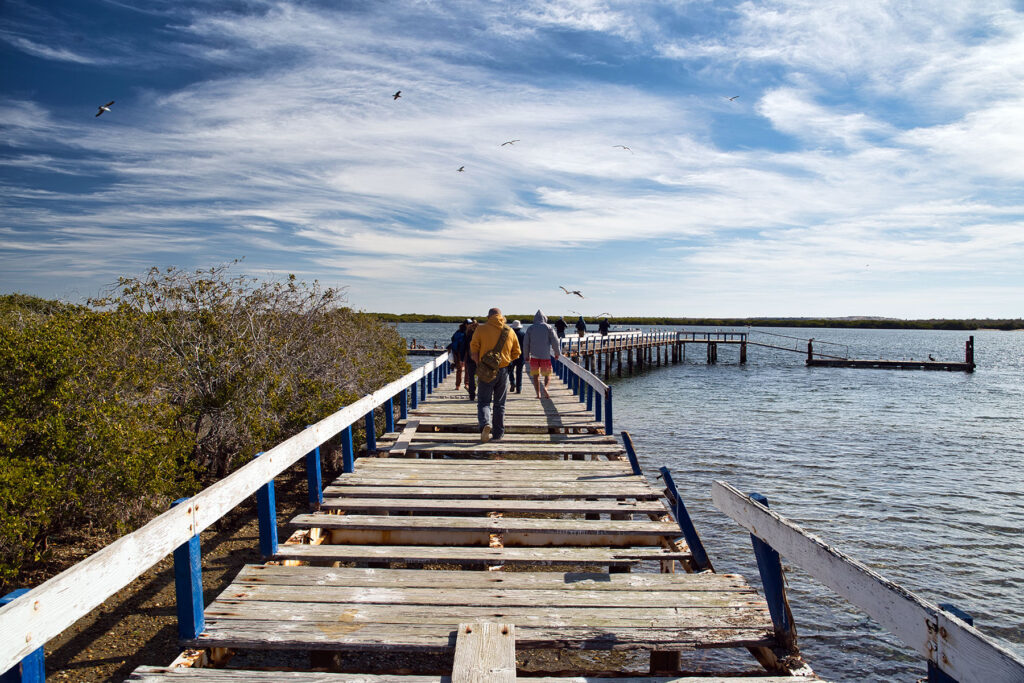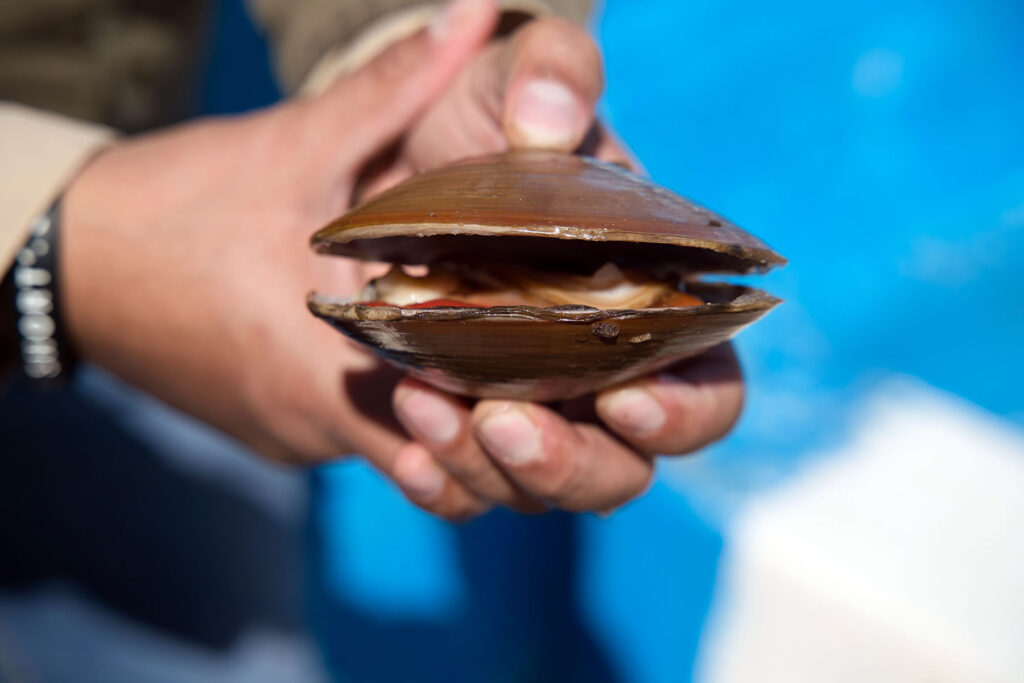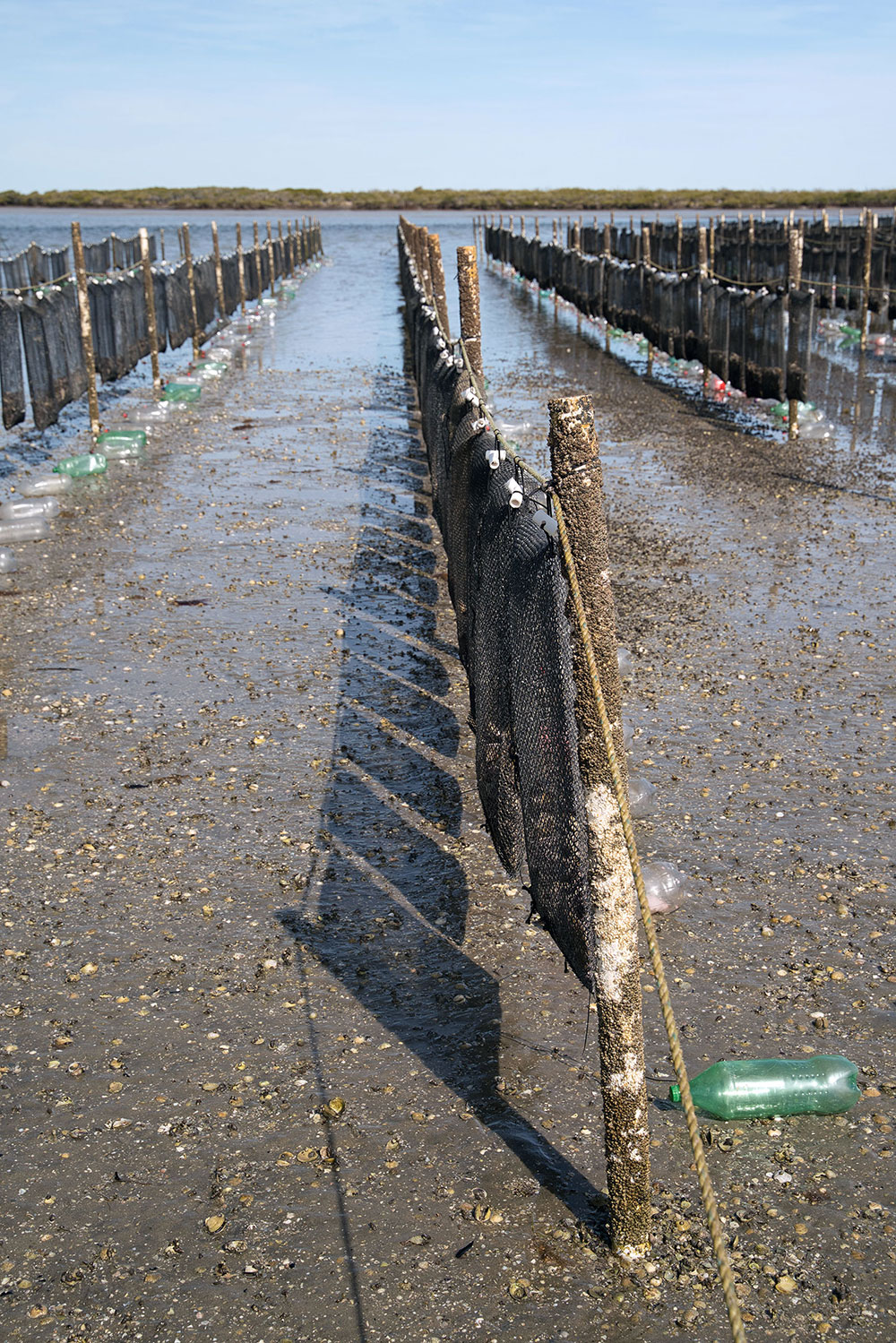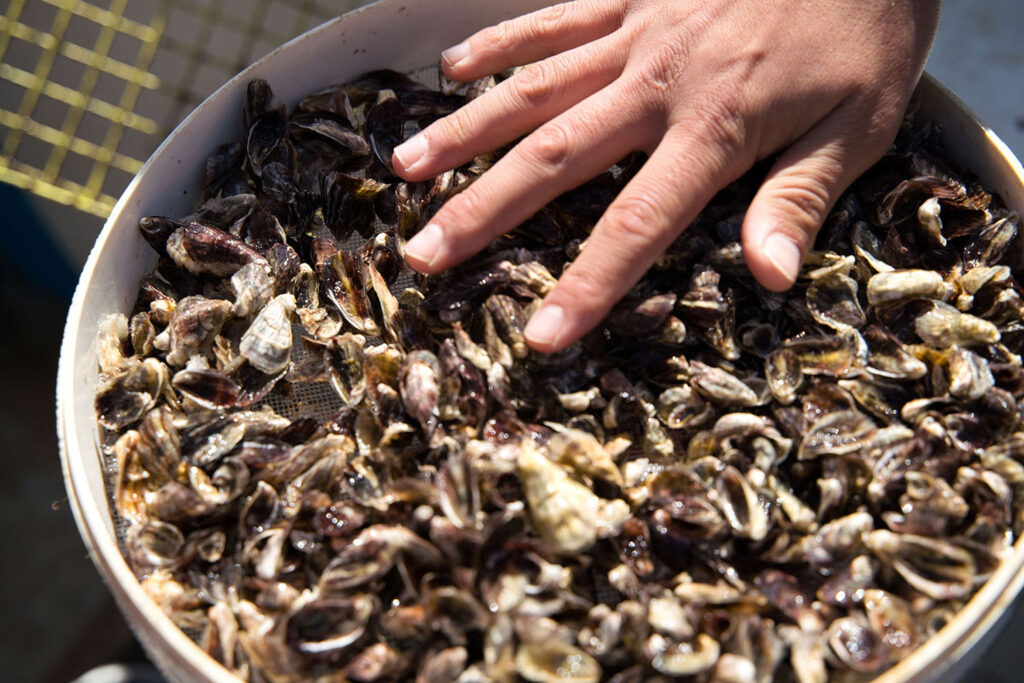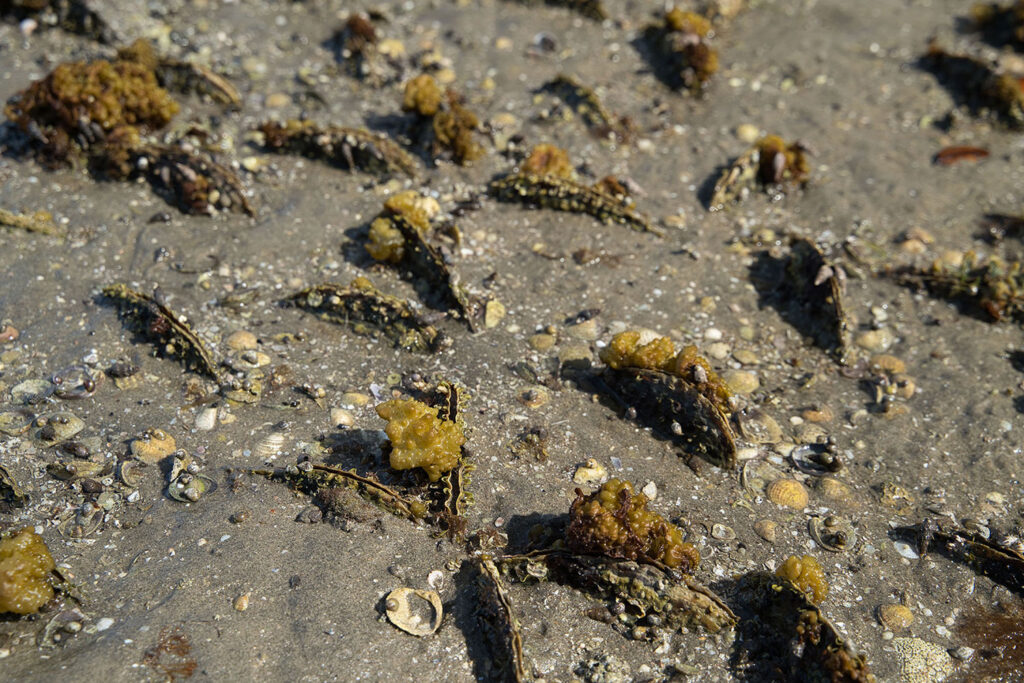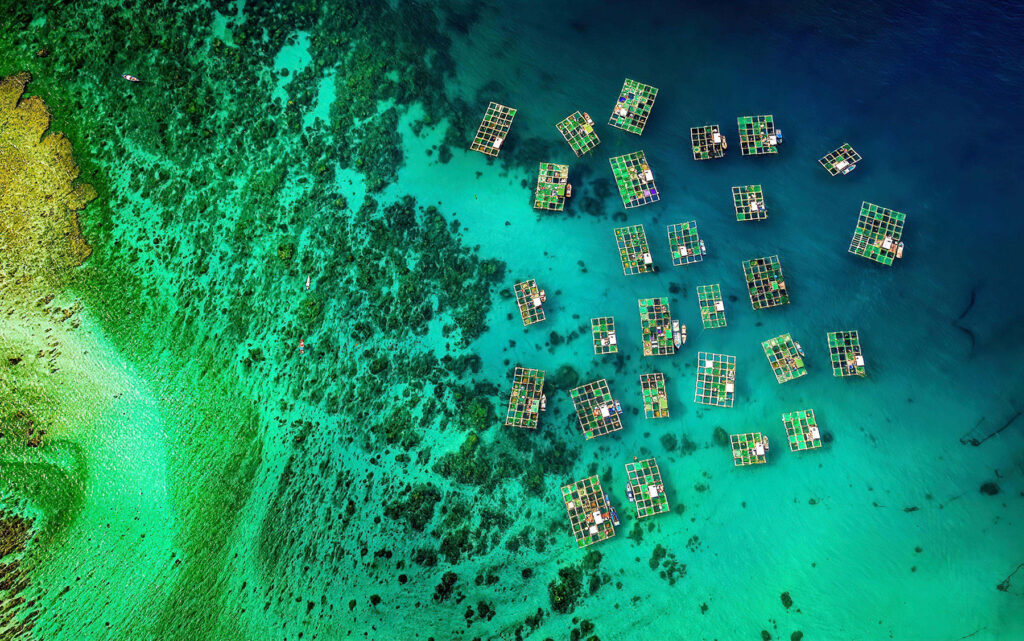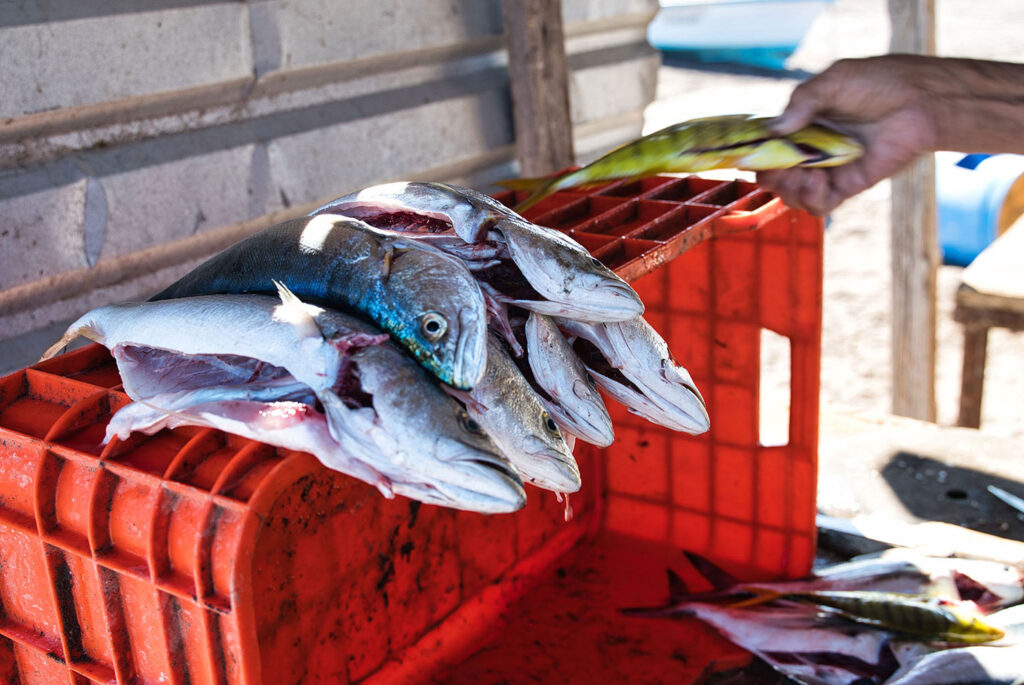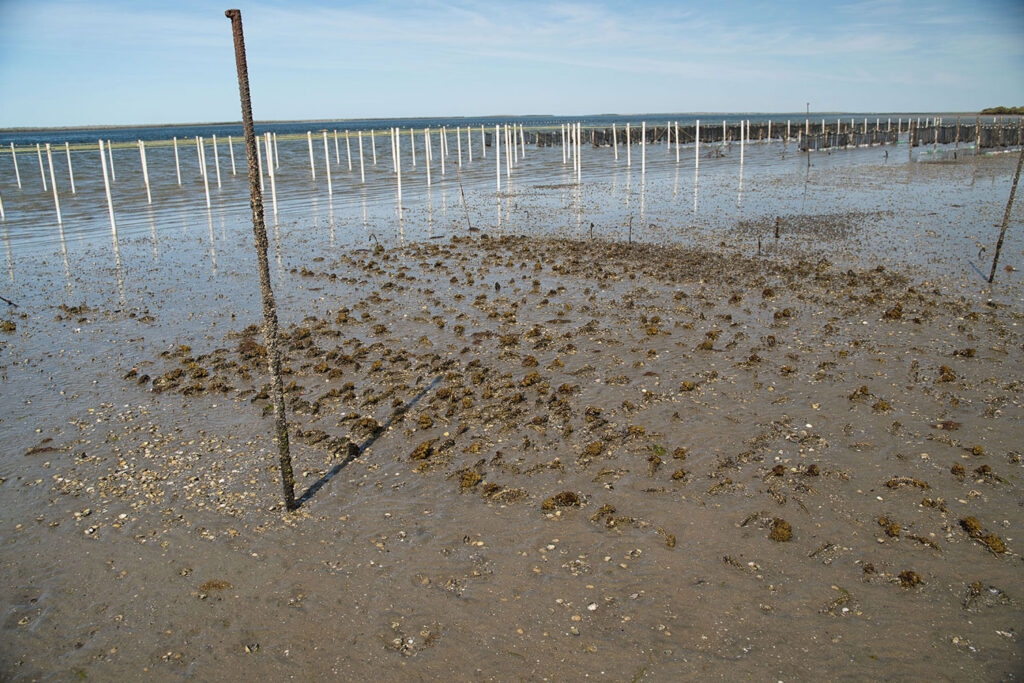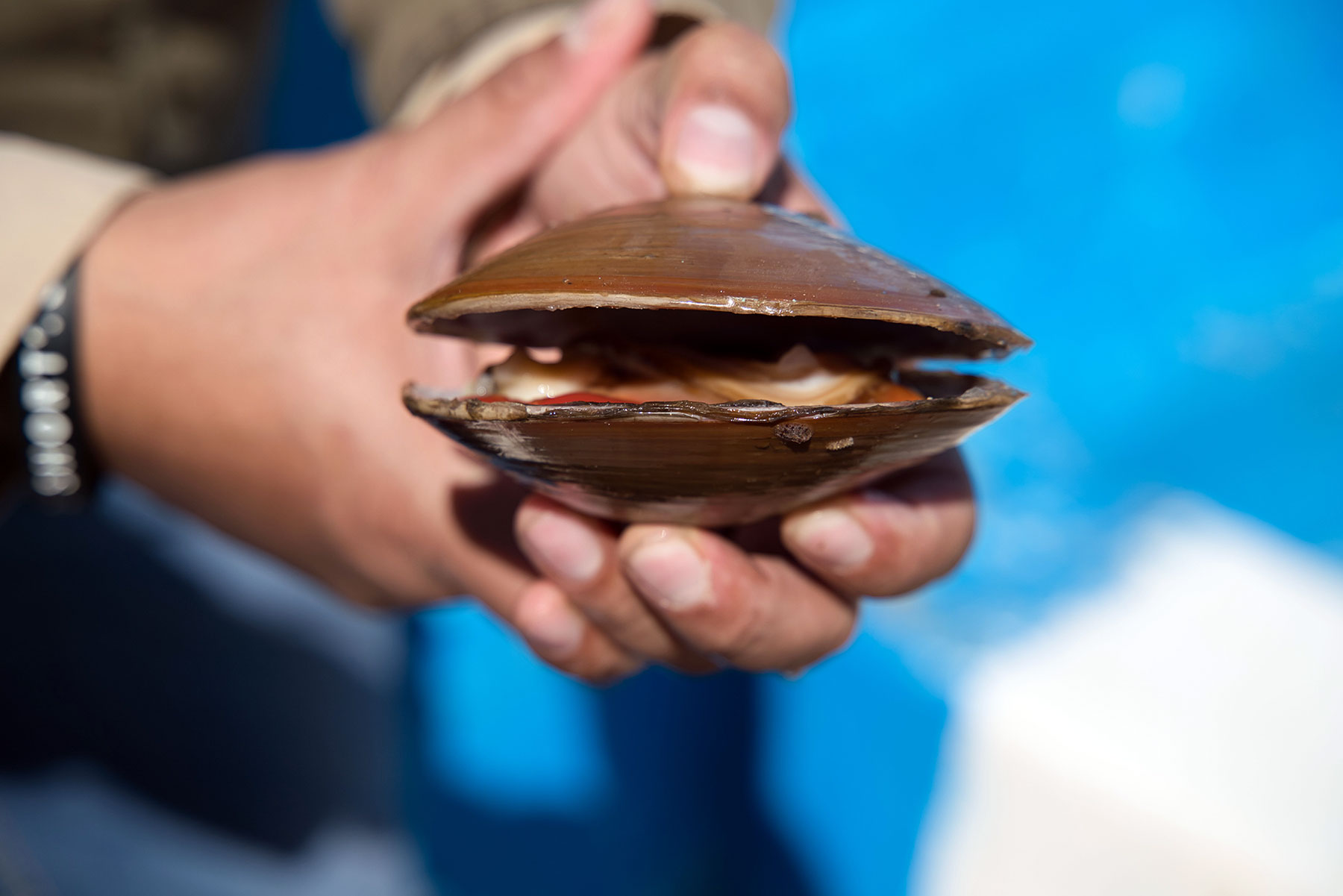Mexico – Baja California Peninsula
Overview
The seas surrounding the Baja California Peninsula are among the richest on Earth. The region’s abundant fisheries constitute over 70% of the country’s annual catch, which contributed over US$2 billion to Mexico’s economy in 2021. But due to overfishing and a changing climate, catches have been increasingly less reliable since the 1980s; 80% of fisheries in the region are now estimated to be overexploited or fully exploited, threatening livelihoods for many communities.
To ensure a sustainable food supply and employment for its citizens, now and into the future, the development of marine aquaculture presents an opportunity of strategic investment. The Mexican National Commission of Aquaculture and Fisheries (CONAPESCA) developed and issued directives to promote the expansion of fisheries and aquaculture production from 1.7 million metric tons to more than 2.7 million metric tons per year by 2030.
The Gulf of California and the Pacific Coast presents a marine ecosystem with outstanding potential for sustainable aquaculture expansion. In Baja California Sur alone, over 90 fisher cooperatives exist. Each hold permits fostering aquaculture that allow for the development of almost 1,500 hectares, coexisting with more than 264 fishing camps. There is also growing interest to develop the area with additional large-scale farms, including finfish farms. But if these developments occur improperly there could be significant impacts to the seas surrounding the Baja California peninsula. In addition, if appropriate business models and species are not supported, aquaculture many not serve to benefit coastal fishing communities along the peninsula, many of whom are facing diminished economic opportunity as a result of overfishing.
Using best practices from around the world this project is applying TNC’s smart growth strategy, working directly with state and federal government officials to co-develop sustainable aquaculture guidelines and siting advice as well as a deliver training curriculum on aquaculture management techniques and practices. This will build governance capacity to manage aquaculture effectively in the Gulf of California. Decision-support tools and guidelines are also being developed, including spatial planning, site screening, and siting tools and guidelines, to identify suitable coastal and marine areas for the future development of aquaculture operations.
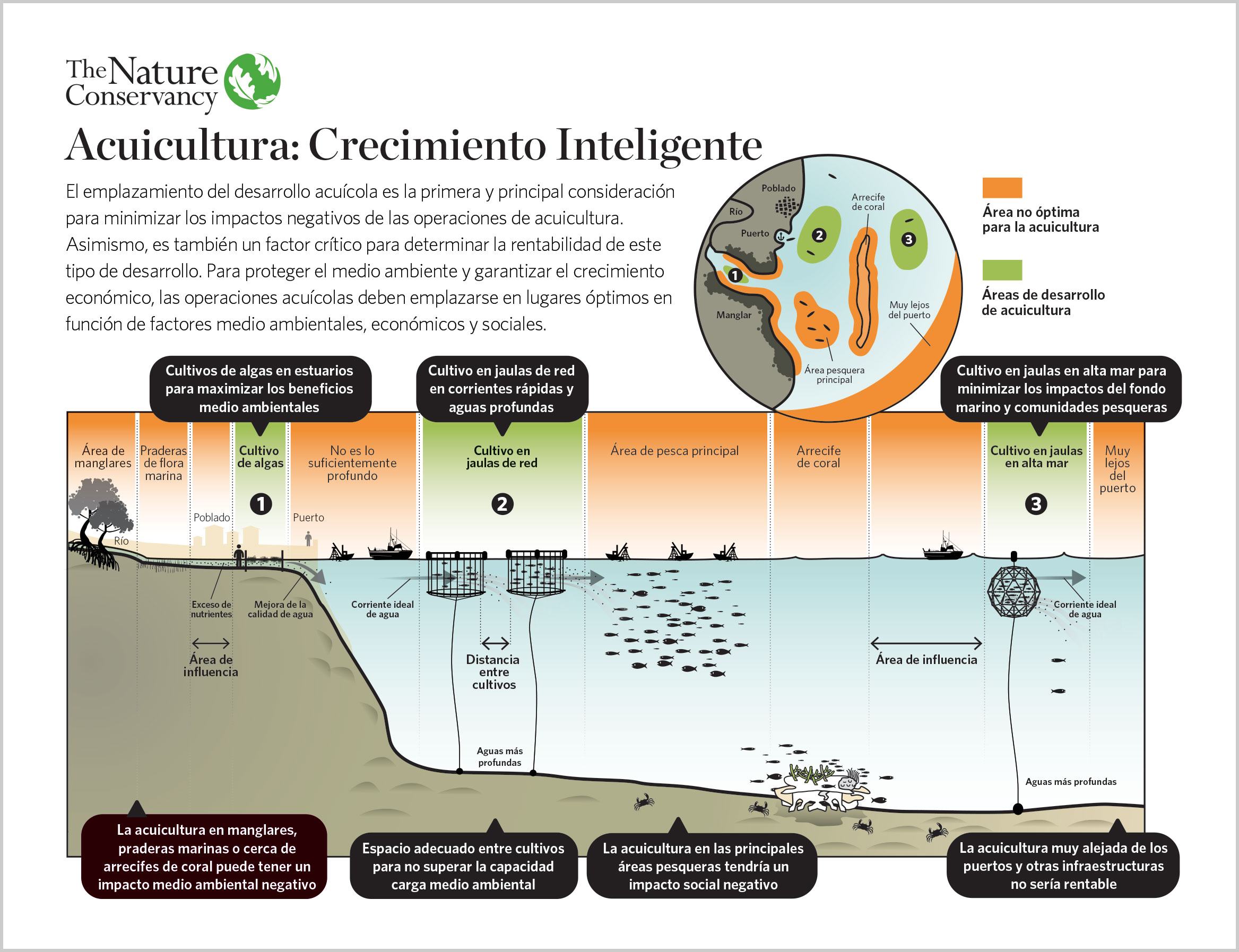
TNC’s Role
- Facilitation of participatory workshops to engage stakeholders, strengthen collaboration and develop partnerships
- Science and technical expertise
- Completion of aquaculture suitability analysis for Baja Peninsula
- Co-development of guidelines for sustainable aquaculture practices
- Co-development of decision support tool
- Capacity building through training curriculum
- Analysis and recommendations of current legal framework with input from key aquaculture stakeholders (producers, state governments, non-profits and academia)
The project launched with a partner workshop held in La Paz, Mexico, in February 2023. Participants representing a range of groups attended, including regulators, national government scientist, aquaculture farmers, aquaculture researchers, and non-governmental organizations. The workshop served as an important forum to discuss the status of aquaculture around the Baja California Peninsula, the interests of stakeholders in having a suitability analysis completed, and critical data for the assessment.
In October 2023, TNC presented the final version of the suitability analysis and decision support tool to stakeholders, released a legislative assessment and recommendations for sustainable aquaculture development in the region, and ran several meetings and training workshops to capacity building for siting and spatial planning.
Project Partners
- INAPESCA
- The Nature Conservancy
Fact Sheets and Project Links
Coming soon
Contacts
Mariana Walther Mendoza, Gulf of California Fisheries Lead
mariana.walther@tnc.org
Heidi Alleway, Senior Aquaculture Scientist
heidi.alleway@tnc.org
Jonathan MacKay, Aquaculture Spatial Scientist
Jonathan.mackay@tnc.org
